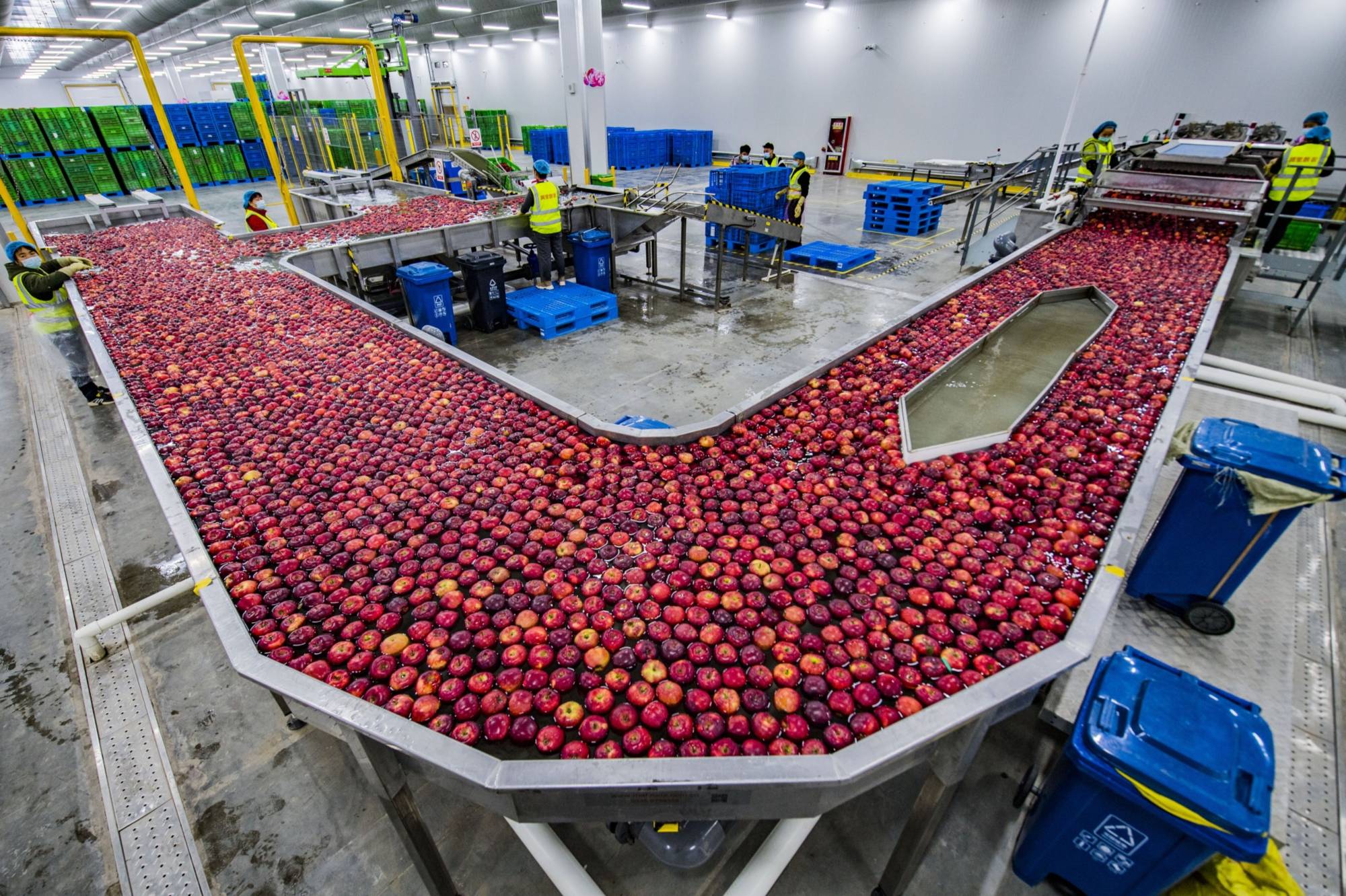The battle to supply 1.4 billion people with fresh fruit and vegetables is taking China’s e-commerce companies into the country’s hinterlands, where they are attempting to revolutionize centuries-old agricultural practices to secure future supply for their burgeoning online grocery businesses.
Xi Jinping’s government has long made self-sufficiency in food a "top state issue” as it seeks to avert a looming food crisis. The need to modernize China’s 200 million largely small-scale farms took on added urgency during the pandemic, when output and logistics disruptions coincided with homebound shoppers turning to Alibaba Group Holding Ltd. and other internet retailers for their produce.
Now, some of the country’s largest private companies have joined in with state efforts to help growers boost production, improve food quality and lower prices. For the e-commerce giants, it’s one way of strengthening their foothold in an online grocery market that’s expected to be worth more than $120 billion by 2023, without running afoul of Beijing’s recent crackdown on monopolistic practices like predatory pricing and forced exclusivity arrangements.


















With your current subscription plan you can comment on stories. However, before writing your first comment, please create a display name in the Profile section of your subscriber account page.